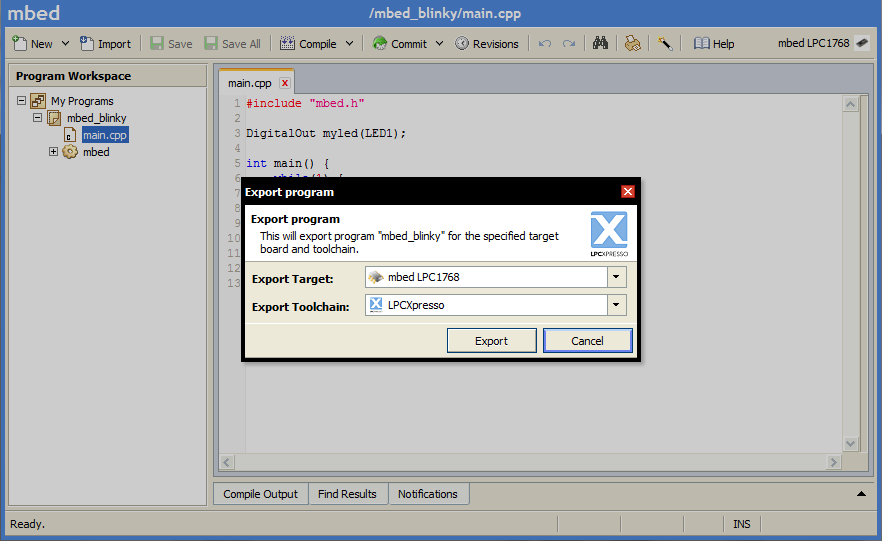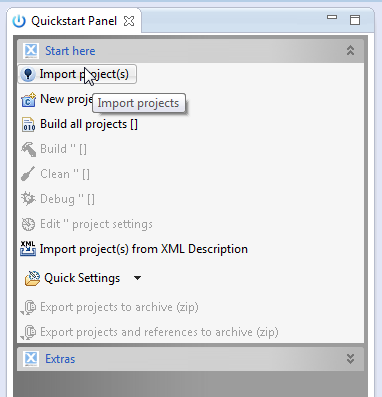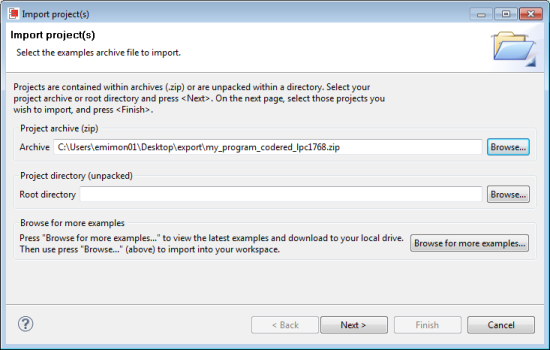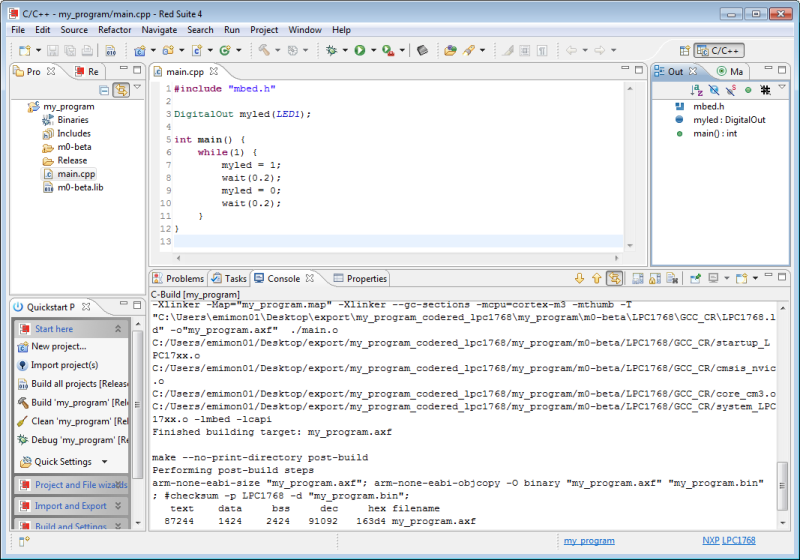Exporting to LPCXpresso
This content relates to a deprecated version of Mbed
Mbed 2 is now deprecated. For the latest version please see the Mbed OS documentation.
Support
Please note, changing the compiler toolchain introduces many degrees of freedom in the system; these differences include the translation of C/C++ code to assembly code, the link time optimizations, differences because of the implementations of the C standard libraries, and differences based on compile and link options. It also makes it a lot harder to share code and questions with other developers, as the context needs to be shared too!
Whilst we support exporting your project and the libraries to an alternate toolchain, we cannot guarantee the same consistency as using the mbed Online Compiler. We will do our best to maintain the exported libraries, project file and makefiles, but please understand we can not cover all cases, combinations or provide support for use of these alternate tools themselves!
LPCXpresso is one of the external offline toolchains supported by the mbed platform.
For a complete overview of the "export" feature, please refer to our general: Exporting to offline toolchains.
To export your mbed program for use in LPCXpresso, right-click the program in your program workspace. From the dialog, you can select the "Export To" as "LPCXpresso", and the target microcontroller you wish to export for.
When you choose export, a zip file containing all the files you need for LPCXpresso will be generated.
The zip file is ready to be imported into the LPCXpresso IDE. In the "Quickstart Panel" click on the "Import project(s)" and select the project archive (.zip) path.
After the build, your binary will be generated in the "Release", or "Debug" directory, depending on the selected configuration.



